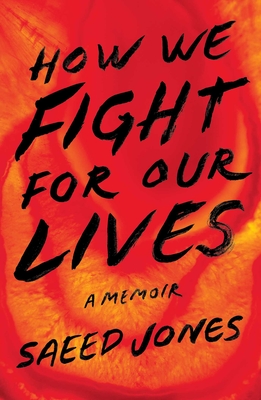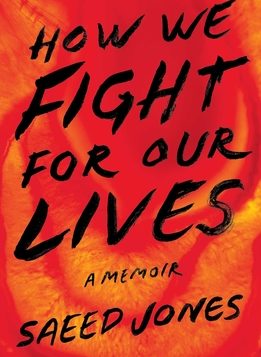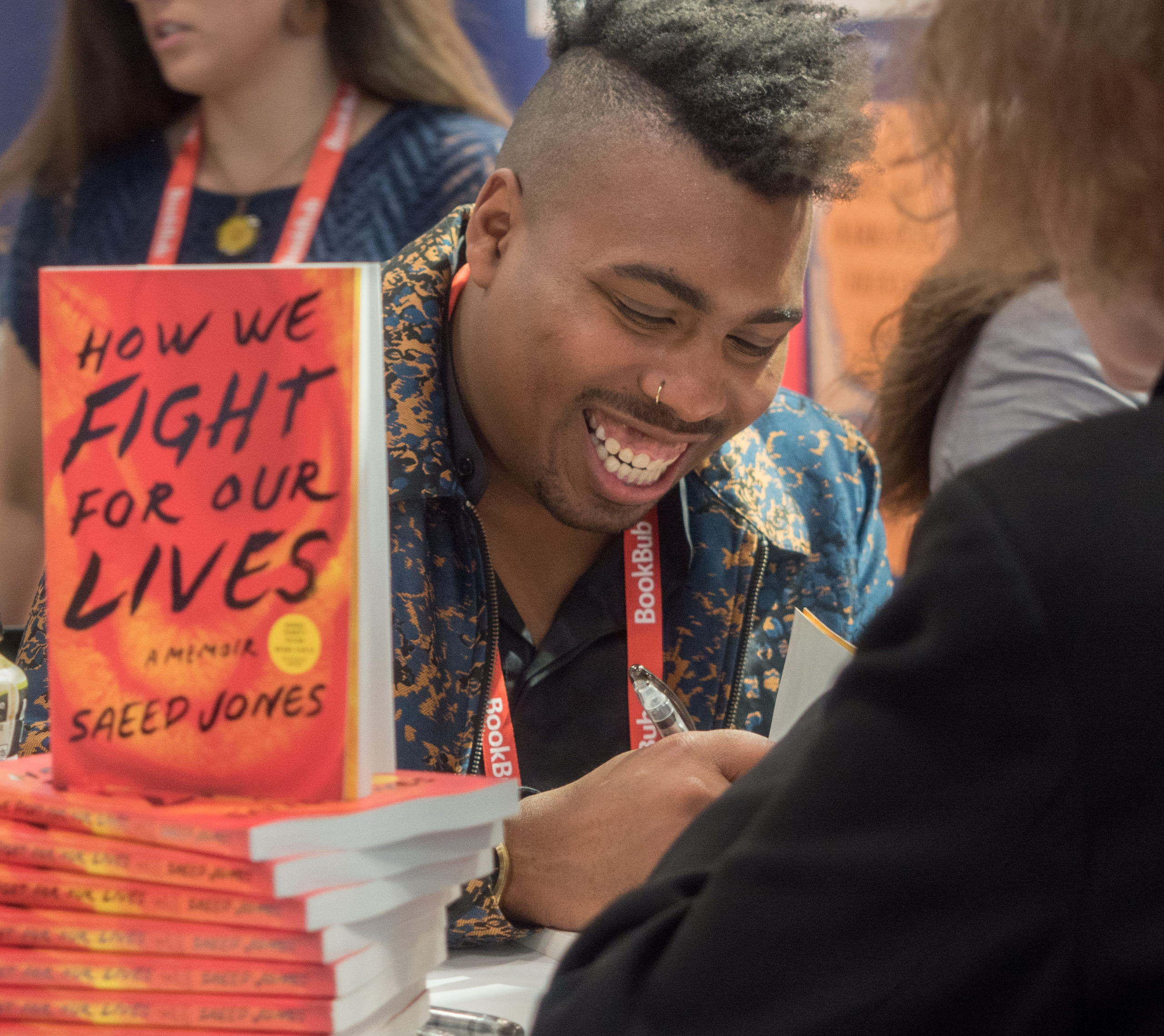 How We Fight for Our Lives: A Memoir
How We Fight for Our Lives: A Memoir
by Saeed Jones
Simon & Schuster. 193 pages, $26.
HOW WE FIGHT for Our Lives is a deeply compelling and personal memoir about growing up black and gay in a world where being either can be challenging, and the combination can be deadly. Saeed Jones, author of the poetry collection Prelude to Bruise (2014), writes eloquently powerful prose about his many painful experiences, with insightful observations about desire, family relationships, and other issues.
Growing up in the South, the only child of a single mother, Jones faces anxieties well known to many gay boys. A poem at the book’s start describes him as he watches his mother dance to a Prince song, remarking that just as, “briefly, your mother isn’t your mother … if the falsetto is just right, a black man in black/ lace panties isn’t a faggot, but a prince.” He continues: “you hate/ the voice coming through the radio because another/ sissy has snatched your dreams and run off with them.” At twelve, he discovers a stash of pornographic magazines with the two boys living across the street, lingering over one photo of a man. The day they are to exchange magazines, the other boys steal his copy, calling him “faggot!”
Later, he watches a news report of the murder of James Byrd Jr., a black man beaten and dragged from a truck for more than a mile by “three white supremacists.” He writes of trying to sleep: “there should be a hundred words in our language for all the ways a black boy can lie awake at night.” He attends a high school production of The Laramie Project, which he knows is based on Matthew Shepard’s murder, which reminds him of James Byrd Jr.’s. He remarks: “I envied the girls who felt comfortable enough to cry” while putting on the “indifferent” posture of the boys, who were “afraid to admit that they’ve been touched by art, and that they want to be touched in that way again.”
Even his own family is a source of fear and conflict. His mother discovers his chat room conversations with older men. She tells him how dangerous his behavior is, but she backs off “just before either of us was forced to get more specific than vague allusions to ‘feelings’ and ‘questions.’” Having spent many summers with his grandmother in Memphis, he is saddened when she switches to an evangelical church and introduces him to people in a “flat dry tone”: “This is my grandson, Saeed. His mother is Buddhist.” At one service, the preacher prays with his grandmother over his mother, asking to “make her suffer” for choosing “the path of Satan.” Jones wants to “roar back at this man,” appalled that his grandmother would wish this upon her own daughter.
In college, Jones is finally able to act upon his feelings. His newfound freedom, however, is fraught with danger. Meeting a hookup, he realizes the man had lied about everything, “even the color of his eyes.” In bed, the man growls at Jones “to wreck him, to gut him, to breed him,” before making a racial slur. Although he wants “to pull myself out of him and out of that room,” he returns, because “it’s possible for two men to become addicted to the damage they do each other.” Another hookup goes from sex to a beating “so quickly I could still feel my erection pressed against his stomach.” Studying and writing poetry helps him through these difficult situations. Although brief, this book is filled with beautiful language and more dramatic situations than anyone should have to endure. This reader is grateful that Jones survived to tell his story.
Charles Green is a writer based in Annapolis, Maryland.






